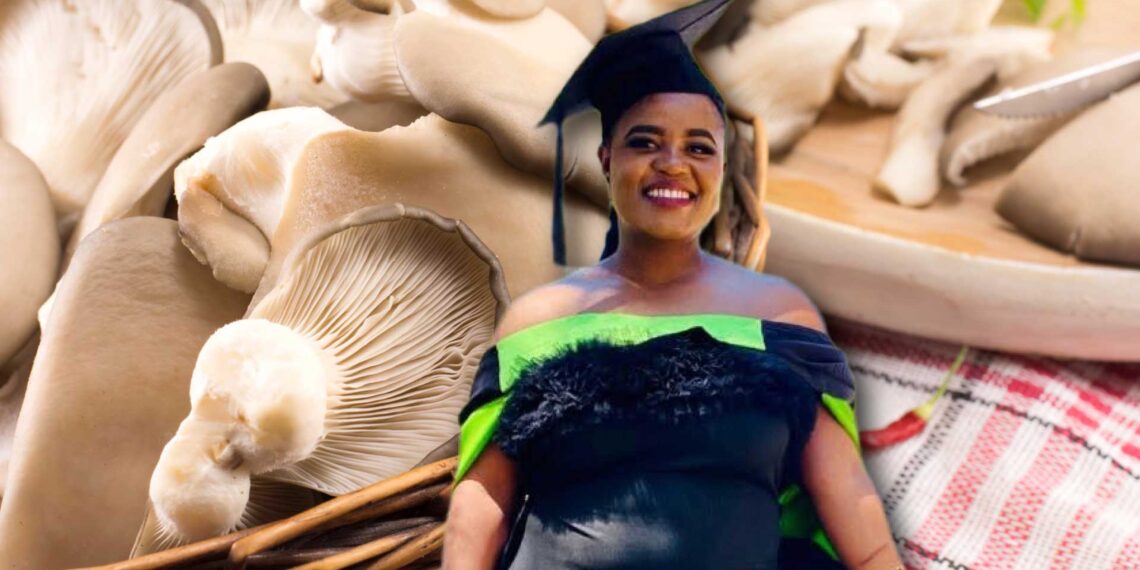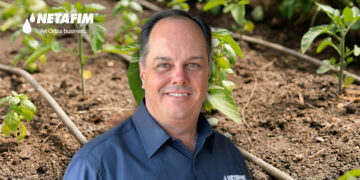Dineo Majoang’s journey from a childhood spent watching her grandparents farm in the Free State to completing an MSc in animal science at North-West University is a story rooted in both tradition and innovation. Her dissertation explored the potential use of a by-product from oyster mushroom cultivation as a poultry feed additive to mitigate the adverse effects of aflatoxins.
Majoang’s research revealed that while high levels of organic mushroom substrate in feed worsened some physiological effects, a modest 2% inclusion actually enhanced egg, meat, and bone quality.
This finding opens the door to affordable, environmentally friendly poultry feed alternatives that could help rural farmers improve productivity and reduce costs.
Food For Mzansi caught up with Majoang as she reflected on her journey, combining early lessons from her grandparents with scientific research to create affordable, sustainable poultry feed solutions aimed at helping rural farmers reduce costs and improve productivity.
Lisakanya Venna: What inspired you to explore the use of mushroom by-products in poultry feed, and how exactly does it help reduce aflatoxins?
Dineo Majoang: There are millions of people, particularly in rural areas, who are malnourished, and eggs, as a cheaper source of protein relatively expensive red meat can cater for that. In southern Africa, the production and health of layers and the quality of their products are threatened by the proliferation of mycotoxigenic fungal metabolites, particularly aflatoxin, in major dietary ingredients such as maize and oilseed cakes.
Hence, there was a need for new solutions to combat aflatoxicosis in birds. My study looked at how adding oyster mushroom spent substrate (OMSS) to poultry feed could help reduce the toxic effects of aflatoxin.
At the same time, the cultivation of oyster mushrooms (Pleurotus ostreatus) has increased tremendously throughout the world because of their ability to grow at a wide range of temperatures and utilise various agro-based residues.
Related stories
- Mastering poultry feed: Tips to maximise efficiency
- Poultry farmers: A guide to selling to abattoirs
- Young Limpopo scientist unlocks peperboom’s healing power
- Indigenous crops: The climate-smart superfoods we need
Can you explain the science behind how mushroom by-products mitigate aflatoxin contamination in poultry?
Oyster mushrooms have special enzymes that can break down tough plant materials as well as harmful toxins like aflatoxins. These enzymes work by changing the chemical structure of the aflatoxins, making them less harmful.
They do this by opening up the toxic molecules and turning them into safer compounds that are easier to remove or neutralise. This natural process helps reduce dangerous toxins in food and animal feed.
What potential impact could this innovation have on the poultry industry in South Africa and beyond?
This innovation could have several positive impacts on the poultry industry in South Africa and beyond. Improved layer health and productivity can result from reducing aflatoxicosis using spent mushroom substrate, leading to better egg production, improved egg and meat quality, and lower mortality rates.
It also enhances food safety by lowering aflatoxin residues in eggs and poultry products, which reduces health risks for consumers.
Economically, reducing losses caused by aflatoxicosis can increase profitability for poultry farmers and the industry as a whole. Additionally, spent mushroom substrate is a sustainable, readily available, and eco-friendly alternative to synthetic feed additives.
How does this research contribute to sustainable agriculture and food waste reduction?
The use of OMSS in poultry feed promotes sustainable agriculture by repurposing a waste product from mushroom cultivation into a valuable feed additive. This reduces waste disposal issues and environmental impact, while also cutting feed costs by partially replacing traditional ingredients.
OMSS supports a circular economy approach by turning waste into a useful resource and helps reduce mycotoxin contamination in feed, promoting a safer, healthier food system.
Additionally, OMSS contributes to food waste reduction by creating value-added poultry products, such as eggs and meat, which can fetch premium prices and encourage sustainable farming. It repurposes agricultural by-products from mushroom cultivation, including compost and various organic residues, and minimises environmental harm by diverting waste from landfills or other disposal methods.
READ NEXT: Joburg Market empowers small-scale farmers with market training

















